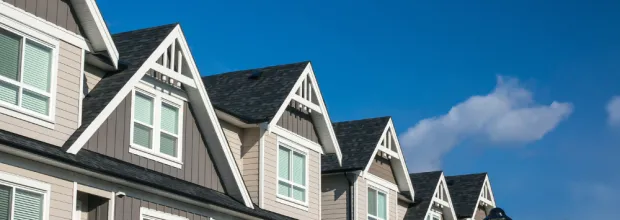Understand your responsibilities
Depending on the property owner and whether you are renting an apartment or house, you may or may not be responsible for certain utility bills, such as natural gas. Often, a property owner will cover certain things like garbage and water. But, when it comes to gas and electric service, many times renters are responsible for setting up and paying for the service. Be sure to ask about your property owner’s policies when touring the home. Study up on the lease that is provided by the property owner so you are not stuck without lights or heat when you move in.
Once you move in, be sure to review each of your utility bills for discrepancies, particularly if you live in an apartment. There have been instances of one apartment paying for the service of another unit or common building electric usages such as public lights or laundry services being inappropriately charged to a resident. If this is the case, contact your utility. While the utility is not responsible for reimbursing you, they can provide information that you can, in turn, use to solve the problem with the property owner.
If the property owner is responsible for these resources, it is still important to use these resources wisely. Stay in communication with the property owner to make sure energy is being used wisely for comfort in your home.
Ask about appliances and mechanical systems
If you are moving to an apartment or house in which you will be responsible for utility bills, be sure to ask the property owner questions about the major mechanical systems such as the furnace, water heater, and air conditioner. Find out who is responsible for having the furnace and air conditioner serviced each year. Good information to have when deciding on a new home is understanding how efficient the appliances are and whether they are gas or electric. This is very important to understand when thinking through what your budget for your home is. Many people only focus on the rent when considering whether or not a place is within their budget. However, there can be many hidden costs that can add up quickly, and old, inefficient appliances are one of them.
Read through your bill
Each month when you get your bill, be sure to read through it and double-check your charges. If you are enrolled in e-billing, always download your bill to see the breakdown for each charge. Check out our page on how to read a bill if you have questions or are uncertain about charges. Contact CUB or your utility if your bill seems high or if you notice a discrepancy.
Efficiency Tips for Renters
Keep your home comfortable and reduce your energy usage through whatever Minnesota's weather brings.

- Understand what utilities you pay for by asking your landlord, and ask permission before making changes.
- Replace incandescent light bulbs with LED light bulbs, and turn off lights when not in use. Take them with you if you decide to move.
- Use appliances and electronics efficiently.
- Run full loads of dishes in the dishwasher and let them air dry.
- Run full loads of laundry. Wash in cold water when possible. Minimize the use of a clothes dryer by not over drying and using a drying rack. Clean the lint trap after every load.
- Cook with crockpots and microwaves.
- Keep refrigerators and freezers full, but not overcrowded.
- Clean refrigerator coils.
- Turn electronics completely off and/or use power strips to reduce vampire energy use.
- Keep the thermostat set at 68 degrees or lower in the winter and decrease it up to 10 degrees when away from home and while sleeping.
- Seal leaky areas with removable options in the colder months.
- Use plastic film on windows.
- Use door draft stoppers (buy or make one by rolling up a towel).
- Keep window coverings open in the winter during daylight hours to warm your rooms; close them in the summer days to keep heat out.
- Sign up for an air conditioning cycling program offered by your local utility if you have central air conditioning.
- Use an Energy Star rated AC unit, if you supply your own unit.
- Use fans to minimize the need for air conditioning.
